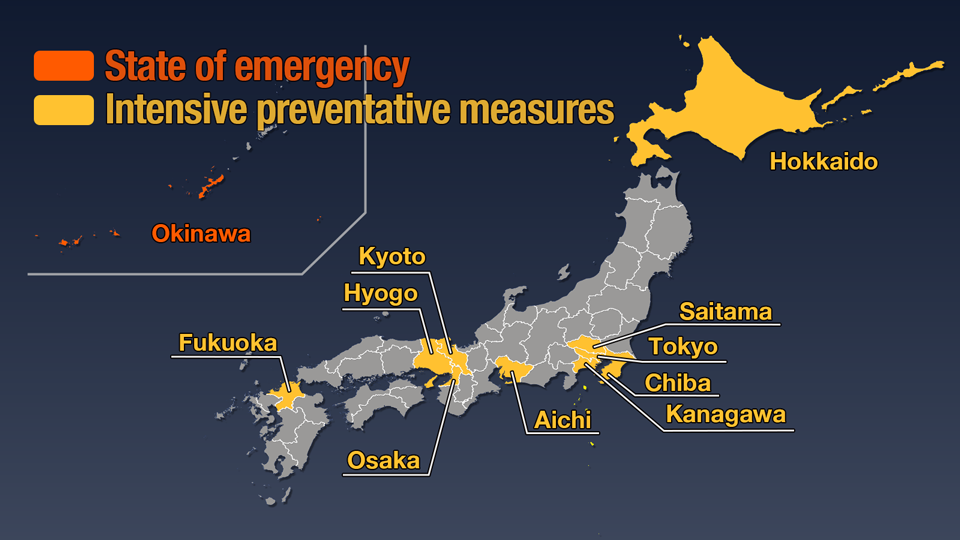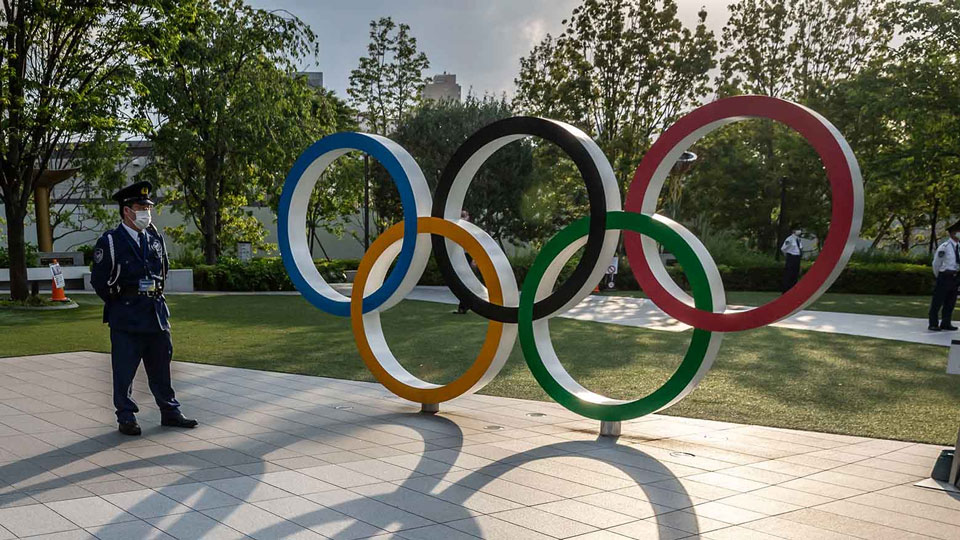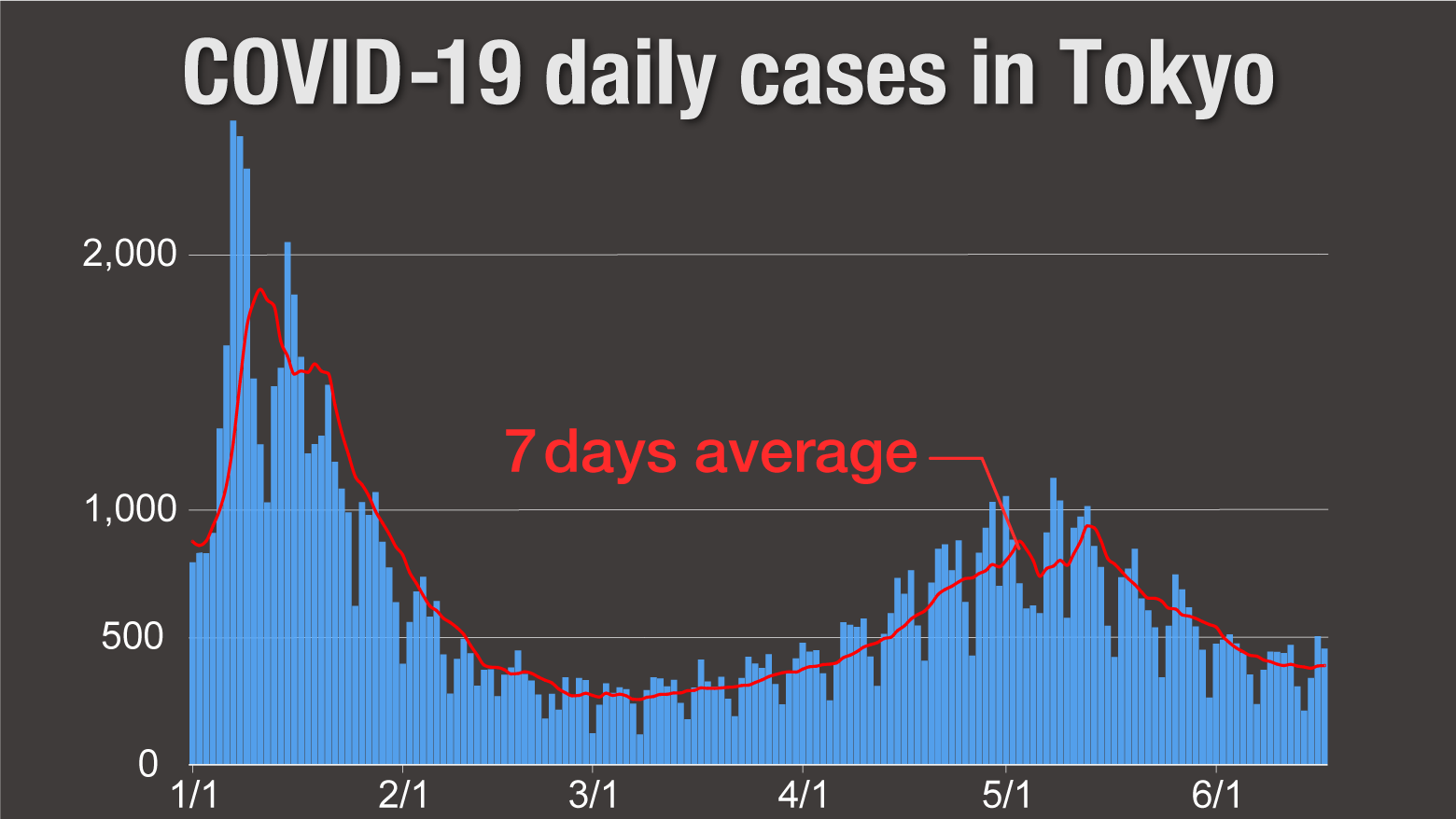Tokyo, Osaka and eight other prefectures are currently under the emergency declaration. Okinawa will be the only prefecture where it will remain in force, because the medical system there is still under pressure. But the end of the emergency period does not mean a lifting of restrictions. Many of the anti-virus measures will remain in place through July 11.
The government will still ask bars and restaurants to close by 8 p.m., but they will allow alcohol to be served until 7 p.m. if anti-infection protocols are followed. The maximum capacity for large events in those prefectures will remain 5,000. Officials are considering raising it to 10,000 from July 11.

Though the number of new cases per day in Tokyo declined during the state of emergency, the pace of the decline has almost halted. The capital reported 452 new cases on Thursday, and the 7-day rolling average is at 98.6 percent of the figure a week ago.
Prime Minister Suga says people should stay vigilant for a possible rebound in coronavirus cases after the state of emergency is lifted.
"If there are any signs of a potential resurgence of infections or a strain on the medical systems, we will respond promptly and take stronger measures,” said Suga at a news conference on Thursday evening. "We will continue to take thorough preventive measures and press ahead with the vaccination rollout."

The Tokyo Olympic Games are just over a month away. The government plans to consult with the organizing committee and other parties on whether domestic spectators should be allowed, and if so, what the attendance cap should be. A decision is expected by the end of this month.
The head of the government’s coronavirus advisory panel, Omi Shigeru, and other experts have concluded that holding the Olympics without live spectators carries the smallest infection risk and is the best option.
In a news conference on Thursday, Suga said the Tokyo Games will be held in a safe and secure manner, and it is essential to prevent the virus from spreading during the events.
"As we face the grave challenge of the coronavirus pandemic, it is all the more important for Japan to signal to the world that we can unite our efforts and wisdom to overcome this hardship,” he said.

